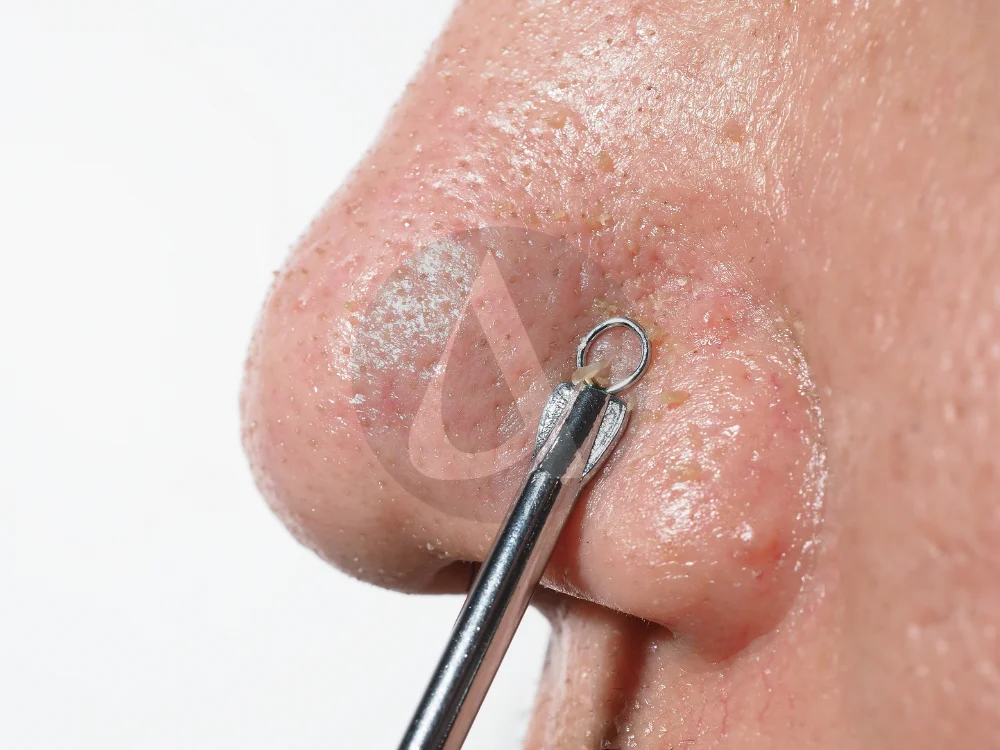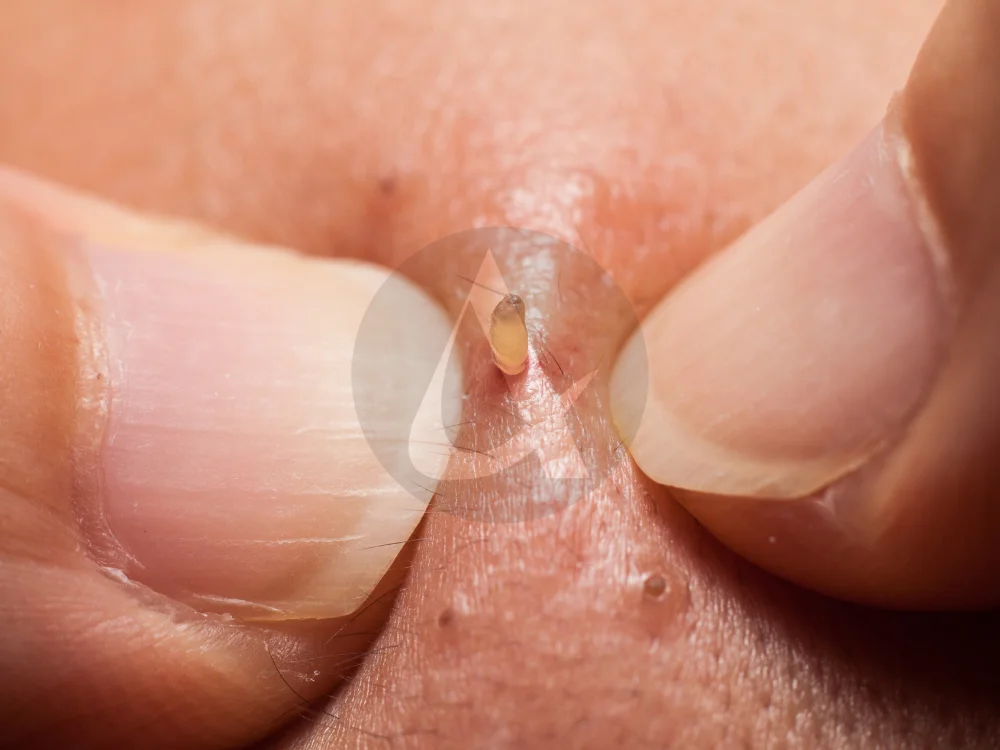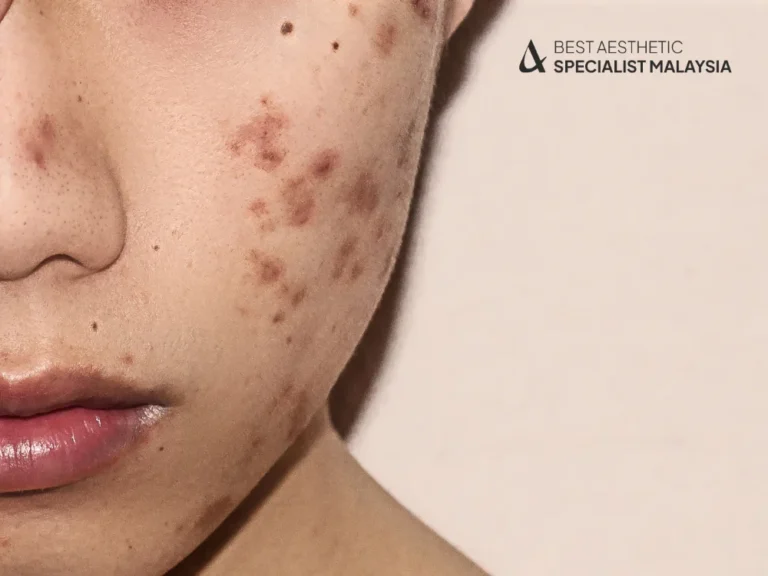Black pimples on face can be a source of frustration for many people. They not only affect your appearance but can also lower your self-esteem. Understanding what causes these stubborn blemishes and learning how to treat them effectively is crucial for maintaining clear and healthy skin. This article will provide you with a comprehensive guide to managing and eliminating black pimples on the face.
What Are Black Pimples on the Face?
Black pimples, also known as blackheads, are a type of acne caused by clogged pores. When dead skin cells, oil (sebum), and dirt accumulate in the pores, they form a plug. The black color results from the oxidation of the trapped material when exposed to air.
These blemishes are commonly found on the T-zone of the face (forehead, nose, and chin) but can appear anywhere. Although black pimples are not painful like cystic acne, they can still be stubborn and challenging to remove.

Causes of Black Pimples on Face
To effectively treat black pimples, it’s essential to understand their root causes. Some of the main triggers include:
1. Excess Oil Production
Overactive sebaceous glands produce too much oil, leading to clogged pores.
2. Poor Skincare Habits
Irregular cleansing or using unsuitable skincare products can result in dirt and oil buildup.
3. Hormonal Changes
Hormonal fluctuations during puberty, menstruation, or pregnancy often contribute to increased oil production and clogged pores.
4. Environmental Factors
Exposure to pollution, humidity, and dust can clog pores, leading to black pimples.
5. Diet and Lifestyle
Consuming greasy foods or high-sugar diets can exacerbate acne. Smoking and stress may also play a role.

7 Proven Ways to Treat Black Pimples on the Face
If you’re tired of dealing with black pimples on your face, don’t worry. Here are some tried-and-tested remedies that can help:
1. Follow a Regular Cleansing Routine
Use a gentle cleanser to wash your face twice daily. Opt for products with salicylic acid, as it helps dissolve excess oil and exfoliate dead skin cells.
2. Exfoliate Regularly
Exfoliation is crucial for removing dead skin cells that clog pores. Use a chemical exfoliant containing glycolic or lactic acid once or twice a week. Avoid over-exfoliating, as it can irritate your skin.
3. Try Over-the-Counter Treatments
Topical treatments with benzoyl peroxide or salicylic acid can reduce black pimples. Retinoids like adapalene are also effective for unclogging pores and promoting cell turnover.
4. Use Non-Comedogenic Products
Choose skincare and makeup products labeled “non-comedogenic,” meaning they won’t clog your pores.
5. Try DIY Home Remedies
- Baking Soda Scrub: Mix baking soda with water to create a gentle exfoliating paste.
- Honey and Lemon Mask: Honey has antibacterial properties, while lemon helps brighten the skin.
- Clay Masks: Clay masks, especially those with kaolin or bentonite, absorb oil and detoxify the skin.
6. Consider Professional Treatments
- Chemical Peels: Performed by dermatologists, these remove the top layer of skin and unclog pores.
- Microdermabrasion: A procedure that exfoliates and improves skin texture.
- Extraction: A trained professional can safely remove black pimples without causing damage.
7. Maintain a Healthy Lifestyle
- Drink plenty of water to keep your skin hydrated.
- Incorporate fruits and vegetables rich in vitamins A, C, and E into your diet.
- Get enough sleep to allow your skin to rejuvenate.
Prevention Tips for Black Pimples on Face
Prevention is always better than cure. Follow these tips to keep black pimples at bay:
1. Double Cleanse
Especially if you wear makeup, double cleansing ensures all traces of makeup and impurities are removed.
2. Avoid Touching Your Face
Touching your face can transfer dirt and bacteria, worsening acne.
3. Wash Pillowcases and Towels Regularly
Dirty pillowcases and towels can harbor bacteria and oil, contributing to black pimples.
4. Protect Your Skin from the Sun
Use a broad-spectrum sunscreen to prevent sun damage and reduce excess oil production.
5. Stay Consistent with Your Skincare Routine
Stick to a routine that includes cleansing, exfoliating, moisturizing, and using sunscreen.
When to See a Dermatologist
While most cases of black pimples can be managed with over-the-counter products and home remedies, it’s important to consult a dermatologist if:
- The pimples persist despite treatment.
- You experience inflammation or pain.
- You have other types of severe acne, like cysts.
Dermatologists can recommend stronger treatments, such as prescription retinoids, antibiotics, or professional procedures.

FAQs About Black Pimples on Face
1. Are black pimples the same as blackheads?
Yes, black pimples are commonly referred to as blackheads. They occur when clogged pores are exposed to air and oxidize, turning black.
2. Can I squeeze black pimples to remove them?
It’s best to avoid squeezing black pimples, as improper extraction can lead to scarring, infection, or enlarged pores.
3. What is the best skincare ingredient for black pimples?
Salicylic acid is one of the most effective ingredients for black pimples. It exfoliates and penetrates deep into the pores to clear blockages.
4. How long does it take to get rid of black pimples?
With consistent treatment, black pimples usually improve within 2–4 weeks. For stubborn cases, professional help may be required.
5. Can diet affect black pimples?
Yes, a diet high in sugar and processed foods can worsen acne. Eating a balanced diet rich in vitamins and antioxidants can improve skin health.
6. Are black pimples a sign of poor hygiene?
Not necessarily. While poor hygiene can contribute, factors like hormones, genetics, and oil production play a significant role in causing black pimples.
Conclusion
Black pimples on the face may be annoying, but with the right knowledge and consistent care, they can be effectively treated and prevented. By following the tips and remedies discussed in this guide, you can achieve clear, glowing skin.

